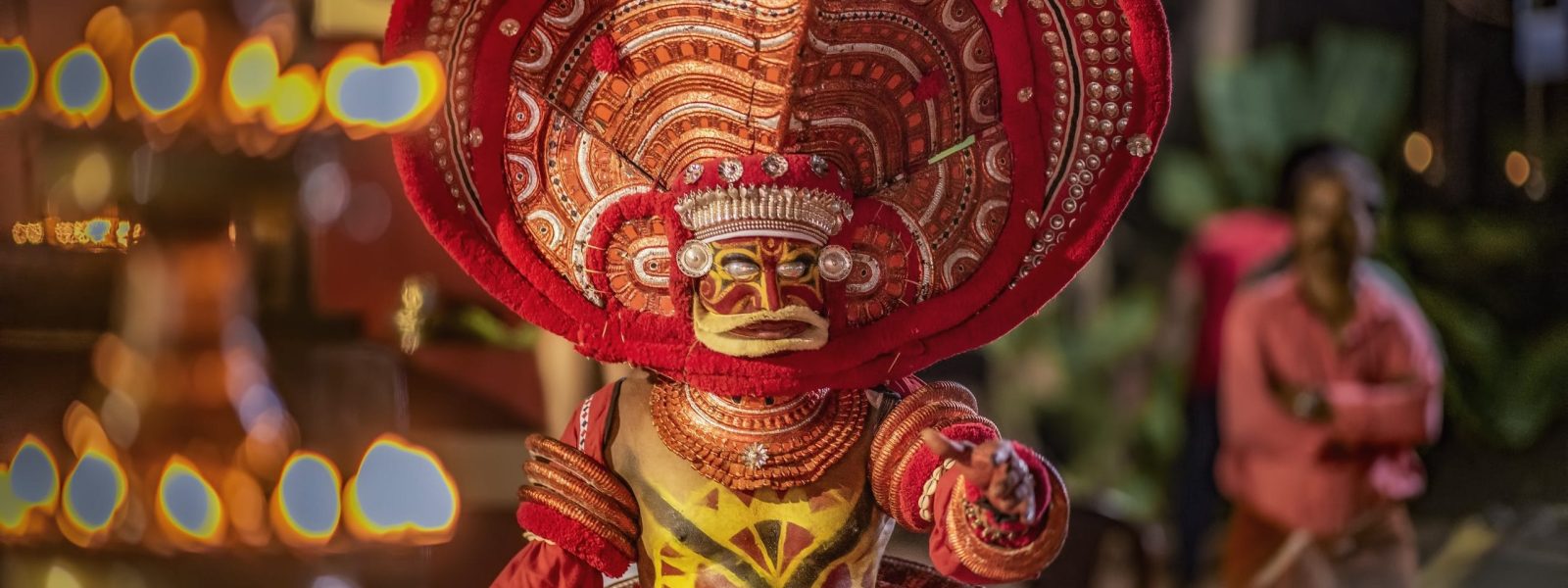Introduction:
Exploring the psychological dimensions of Theyyam, a traditional ritualistic art form in North Kerala, unveils a tapestry rich in symbolism, deep-rooted beliefs, and familial connections within the sacred space of family temples.
Symbolic Psychology of Theyyam:
At the core of Theyyam lies symbolism that resonates deeply within the collective psyche. Elaborate makeup, vibrant costumes, and rhythmic movements serve as channels for spiritual expression, fostering a heightened connection to the divine. This symbolism becomes a language for communicating emotions, fears, and hopes within the familial context.
Community Psychology and Belonging:
The communal nature of Theyyam extends to family temples, fostering an intimate sense of belonging and collective identity within familial units. The shared experience of witnessing or participating in Theyyam rituals strengthens familial bonds, contributing significantly to the psychological well-being of individuals within the family.
The Power of Rituals in Psychological Well-being:
Rituals, especially within the familial space of a temple, play a vital role in shaping psychological well-being. They provide structure and order, offering individuals a framework to navigate uncertainties within the familial context. The repetition of rituals creates a comforting rhythm, enhancing predictability and control within the family unit.
Superstitions and Family Dynamics:
Superstitions embedded in Theyyam take on a unique significance within the family temple. They become not only shared beliefs but also mechanisms for instilling cultural values and norms within the familial setting. Superstitions provide a framework for understanding and interpreting life events, contributing to a cohesive familial narrative.
Female Theyyam:
Traditionally a male-dominated art form, Theyyam is experiencing a transformative shift. The inclusion of female performers challenges societal norms, offering a fresh perspective on gender roles within this ancient tradition.
Theyyam in Family Temples:
Within family temples, Theyyam becomes an integral part of the familial psychological landscape. The performance of Theyyam in these sacred spaces reinforces familial bonds, cultural identity, and a shared sense of spirituality. The family temple serves as a psychological anchor, grounding individuals within the broader context of their familial and cultural heritage.
Conclusion:
The inclusion of family temples in the exploration of Theyyam’s psychology adds another layer of depth to our understanding. It highlights how this ancient ritual not only impacts individual and communal well-being but also plays a pivotal role in shaping familial dynamics. At the National Academy of Behavioral Science, recognizing the intricate connections between Theyyam, familial psychology, and mental well-being is integral to our commitment to understanding and celebrating cultural practices. Theyyam, within the sacred space of family temples, emerges as a unique psychological journey, weaving together tradition, spirituality, and the familial fabric.




